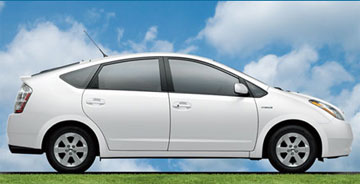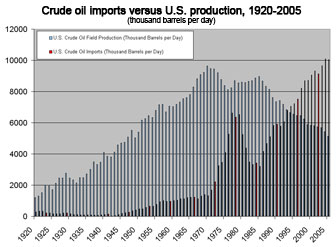California sues Bush administration over fuel standards
California sues Bush administration over fuel standards
mongabay.com
May 14, 2007
Monday California sued the Bush administration for “illegally adopting ‘dangerously misguided’ gas mileage rules.”
In a lawsuit backed by 11 states, the suit alleges that the Highway Traffic Safety Administration’s new mileage standards violate federal law by ignoring both the environment environmental impact on oil use and the country’s growing dependence on imported oil.
“After years of neglect, it is unconscionable to increase vehicle mileage standards by only one mile per gallon,” said California Attorney General Edmund G. Brown Jr. outside the San Francisco-based 9th U.S. Circuit Court of Appeals, where the case was argued Monday. “We are asking the court to reject this dangerously misguided policy that exacerbates global warming and enriches foreign sponsors of terrorism.”
According to the Environmental Protection Agency (EPA), average fuel efficiency for U.S. automobiles is lower today (21.0 miles-per-gallon) than it was in 1987-1988 (22.1 miles-per-gallon), despite climbing oil prices and growing concerns over global warming. Last year the Bush administration ordered a mileage increase to 23.5 miles-per-gallon by 2010, a marginal increase.

|
California’s Brown has been emboldened by an April 2 Supreme Court decision that ruled the EPA now must consider regulations for tailpipe emissions of carbon dioxide.
“The National Environmental Policy Act and other regulations also require the Bush administration, when formulating new mileage standards, to consider the effects of the vehicles’ greenhouse gas emissions on global warming, which the Bush administration failed to do,” said Brown. “Instead, the Bush administration adopted a standard oblivious to how manmade pollution is harming the environment and changing the climate. Bush’s policy continues to feed the coffers of foreign oil-producing governments, many of them sponsors of terrorism, while the price of gas is reaching historic highs. Had the administration followed federal environmental and conservation regulations, the government would have demanded greater fuel efficiency.”
California has been joined by Connecticut, Maine, Massachusetts, Minnesota, New Jersey, New Mexico, New York, Oregon, Rhode Island, Vermont, New York, the District of Columbia, New York City, the Center for Biological Diversity, Natural Resources Defense Council, Environmental Defense and the Sierra Club.

The race for the title of “Largest carbon dioxide emitter” pits the United States versus China. The United States had a large head start but China is expected to surpass it in emissions this year or next. |
The case is known as California v. National Highway Traffic Safety Administration, 06-72317.
The Attorney General’s comments come a week after a U.S. Senate Commerce Committee approved a bill that would raise the passenger fleet automobile fuel standard to an average 35 miles per gallon by 2020. Ted Stevens of Alaska and Trent Lott of Mississippi “expressed reservations” about the bill that supporters say would significantly reduce U.S. dependence on oil and would likely force U.S.automakers to become more competitive.
Related documents from the Attorney General’s office:
- 2007-05-11_NHTSAbrief.pdf
 [PDF 697 kb / 157 pg]
[PDF 697 kb / 157 pg] - 2007-05-11_Centerbrief.pdf
 [PDF 189 kb / 67 pg]
[PDF 189 kb / 67 pg] - 2007-05-11_Californiabrief.pdf
 [PDF 159 kb / 95 pg]
[PDF 159 kb / 95 pg] - Fact Sheet for May 14, 2007 News Conference
 [PDF 33 kb / 1 pg]
[PDF 33 kb / 1 pg] - 2007-05-11__final_comment_letter.pdf
 [PDF 7874 kb / 15 pg]
[PDF 7874 kb / 15 pg]
Related articles
U.S. can cut oil imports to zero by 2040, oil use to zero by 2050. The United States could dramatically cut oil usage over the next 20-30 years at low to no net cost, said Amory B. Lovins, cofounder and CEO of the Colorado-based Rocky Mountain Institute, speaking at Stanford University Wednesday night for a week-long evening series of lectures sponsored by Mineral Acquisition Partners, Inc.